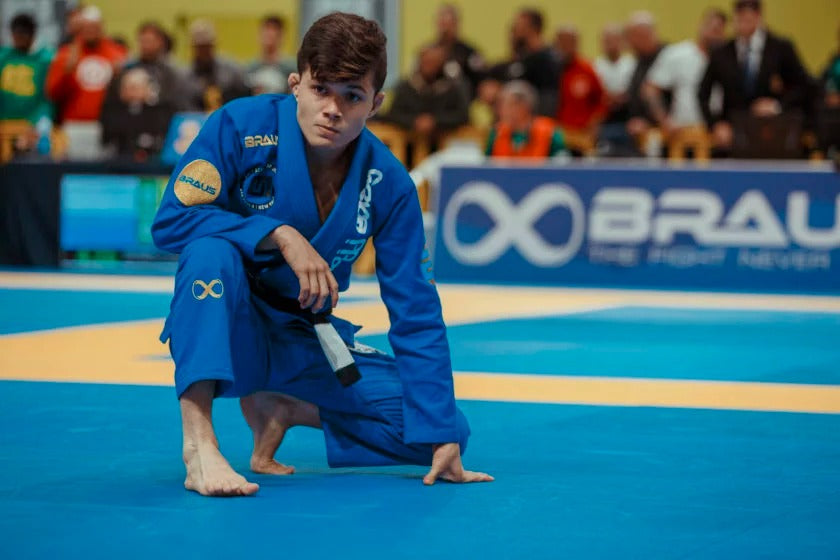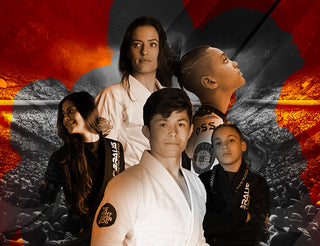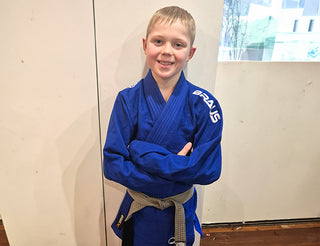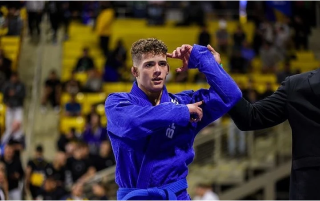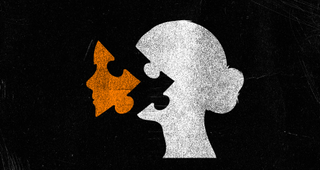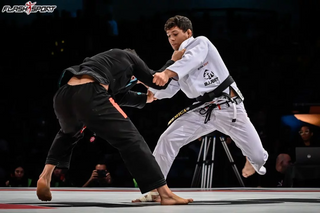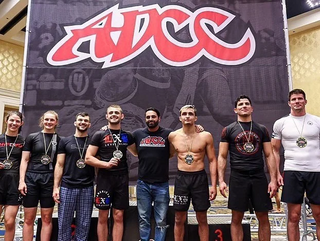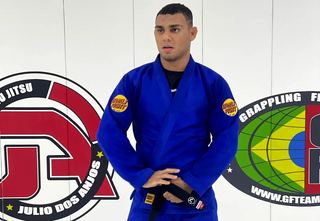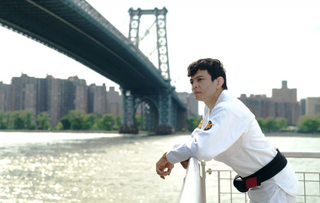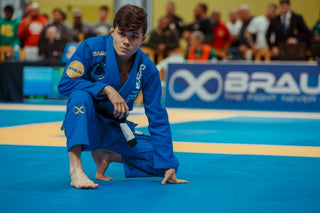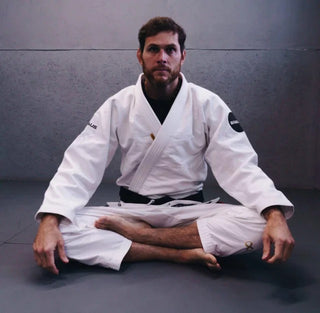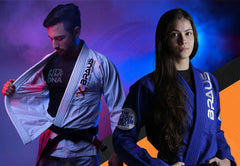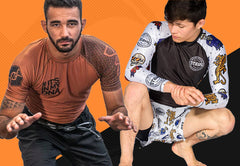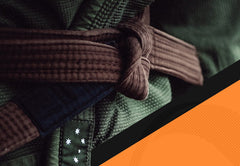“I used to live in a one-room house with my mother and my two sisters, beside a stream,” says black belt Thalison Soares, recalling the beginnings of his life before investing in a professional career in Jiu-Jitsu . The dictionary explains that a stream is a narrow body of water between two landmasses, almost a waterway that only holds canoes and small boats. “When it rained, the water rose until it hit the bottom of the house, we couldn’t go out. Nowadays I have a much better life.”
Braus Fight athlete Thalison Soares now teaches at an academy in Byron Bay, one of Australia’s wealthiest and most influential cities. Investing so early in a large gym is the opposite of most top athletes. Despite being a prominent color belt and very successful in tournaments, with berimbolos and spectacular spins that made him a dangerous opponent underneath, Thalison decided to settle in Australian soil shortly after his campaign at the European 2020 as a black belt. The intention was to pursue his path through the gentle art not only as a competitor, but as an academy manager.
“I knew that competing wasn’t everything. I was lucky to follow and be friends with several world champions, so I could see that, despite being of high competitive level, that was not what they were aiming for. Why would that be my dream if not even those who were in that place were completely satisfied?”
Check out the full interview on the lines below!
How did you get started in Jiu-Jitsu?
THALISON SOARES: I used to live in Caviana, in the interior of Amazonas, but I went to live with my mother in Manaus when I was 11 years old, due to the death of my father. Back in Manaus, I had some friends who lived near my house and who were already training Jiu-Jitsu through a social project. They always called me to train with them, but I was still very sad and always postponed my visit. Eventually I decided to go and that helped me a lot. Jiu-Jitsu is one of the best sports to connect your body and mind, so I, who was psychologically shaken due to grief, found the ideal help there to strengthen my mind and overcome that sadness.
What was the circumstance that led you to join Cicero Costha’s academy?
In Manaus I already had contact with Melqui Galvão, I even trained with him and Mica at times, and I had already mentioned to him that I wanted to make a living from the sport. I was getting to the age where I would have to choose between working or training. At the time, Melqui was affiliated with Cícero and had his contact, so he offered me to go train there. I made contact with the teacher and ended up going to São Paulo to start my career.
Competitors usually open an academy after a big title, like the Worlds. You opened it before and now you’re going to get this achievement. What led you to this approach?
Competitors want to be world champions, they think they are going to be millionaires with sponsorship and when they reach the end of their careers, they see that they didn’t make the millions and end up opening an academy. You don’t need to be a world champion to start a business, but you do need to learn how to run a business. Being a champion and good at fighting doesn’t mean you’ll be a good teacher. Being world champion matters for those who follow competitions, but for the student it doesn’t matter who I am. What makes a difference for the student is the location, the class, how the gym works, whether the family feels safe, whether he feels good in training. That’s what matters to a parent who is bringing a child or an elderly person who wants to start something new in life. I knew that competing wasn’t everything. I was lucky to follow and befriend several world champions, so I could see that, despite being at a high competitive level, it wasn’t what they were aiming for. Why would that be my dream if not even those who were in that place were completely satisfied?
As an athlete reaching his peak, do you think investing in a teaching career will affect your competitive pace?
Being a teacher was the best thing that ever happened to me. I’ve always had a very good understanding of Jiu-Jitsu and, unlike most people, I like Jiu-Jitsu in all aspects. Many people have preferences within the sport, like passing, guarding or any other style, but I want to do all of that. When you have a student, you start to see Jiu-Jitsu in a different way, you start to see it through their eyes. The result of this is that you end up understanding the art better and end up evolving. Today, my understanding of Jiu-Jitsu, and what it takes to be good, is very big. When you reach this perception, you can observe a high-level athlete and you can even be better than him.
How has the pandemic scenario affected your performance as a competitor?
Before the pandemic, I competed fifteen times a year, that is, more than one event a month. At this pace of competition, you need to be well trained, healthy and you need to always pay attention to your weight. This set of factors ends up leaving you with no time to train Jiu-Jitsu in depth, you only train to improve what you already know, what you do well. With the pandemic and the hiatus in competition, I stopped training my strengths and started working on my weaknesses. My Jiu-Jitsu took a leap in this period because I started to focus on the things I wasn’t good at and now they complement my game. I can say that I was able to evolve in this way because I was not competing and also because I was a teacher, because I also learn from my students.
You chose Australia to be the home of your first gym. What was the criterion used for this choice?
I didn’t choose Australia, she chose me (laughs). It’s a very good place, reminds me a lot of Brazil. I believe that in ten years, Australia will be on the same level as the United States in terms of the evolution of Jiu-Jitsu, of people migrating in search of opportunities. Unlike the United States, Australia invests a lot in Jiu-Jitsu and you’re really welcome. Not to mention other factors, such as the climate, which is very similar to that of Brazil, or hospitals, which offer free services that are exorbitant in the United States.
And how did you “discover” Australia and its potential for the Jiu-Jitsu market?
On my first visit, I was invited to train here. I had just won the Worlds at purple belt and had injured my knee. I even remember that I struggled almost without being able to walk. At that time, I had a different mentality, I thought I couldn’t spend a lot of time in other places because I would miss training. My plan was to come to Australia and spend two months recovering my knee, but I ended up falling in love with the place. I came back here a few times after that, until I decided to stay for good just before the pandemic.
When you decided to stay in Australia, was there already any proposal to teach? How did you deal with the local language barrier?
I already had a partner here and was already planning to open a gym with him. He trains Jiu-Jitsu, he’s a purple belt, but he doesn’t crave competition, it’s a hobby. I already had a girlfriend, so I decided to stay here (laughs). About English, I only learned to speak when I moved here permanently, in 2020. When I was training in the United States, there at Unity, I had more contact with other Brazilians. It was different here, everyone was Australian, so I had to go after it to learn. My English isn’t perfect yet, but it’s much better than before.
How did your entrepreneurial side develop?
My parents separated when I was little and I went to live with my father in Amazonas. He had a fruit stand and I always worked there, so I started to have a basic notion of financial management very early on. Today I am very good with accounts and am always mentally calculating the expenses and profits made. My main objective is not to be world champion, but to undertake and make Jiu-Jitsu grow and evolve. I want everyone who makes a living from Jiu-Jitsu to be paid well for what they do, whether they are athletes, teachers or any other role played within the sport. This entrepreneurial side even helps me compete, as I no longer rely solely on support to participate in a tournament. Winning a championship will help and make you more money, but it’s no longer essential for me to stay active in Jiu-Jitsu. If I become world champion, everyone will be happy for me, but it will make little difference to my student, who is the guy who really contributes to my income.
Thalison became a businessman and teacher, but what about the return of competitions? Eager to return to competitive mats?
Yes, I want to see how I perform. I believe I’m much better than before, I feel that my Jiu-Jitsu had the equivalent of ten years of evolution in this pandemic period. I even had a married fight recently and I did very well. Jiu-Jitsu is still maturing at some points, and competition is one of those points. In the past, you just needed to win, regardless of how you earned it. Nowadays everyone wants to see a good fight, the only one who cares if you won or lost is your teacher. Fans want to see a good dispute, they don’t care if you win on advantage or on points, and that’s how we encourage the public to invest in Jiu-Jitsu.
Some events have already re-rolled in the United States. Have you considered participating?
At the moment, Australia is still closed. I could go, but I would have to be quarantined to be able to come back, so it would be three weeks wasted in this process. I’m at a stage in my business where I need to be more involved, so I prioritized this over competition. It’s better for me to invest in it and have a good foundation for my academy than to interrupt the process every time there is a tournament. I want my gym to grow. It’s also worth remembering that, unlike me as an athlete, my gym has no membership, so I need to dedicate myself a lot for it to be successful.
Analyzing your trajectory, what is the tip you leave for practitioners and athletes seeking success in Jiu-Jitsu?
It’s important to train and compete, but you need other skills to make a living from the sport. Taking part in tournaments and being a champion is good and feeds your image well, but it’s not enough to be successful in Jiu-Jitsu. I know people who are world champions and don’t have a house or a car, end up living on rent or even with other people. If I went alone, maybe I wouldn’t have a problem living like this, but I have a family. When I decided to move to Australia and become a teacher, I received a lot of criticism from people who believed that my focus should be on competition. Because of my different point of view, I was able to buy a new house for my mother last year. Being a champion, even if it’s at a Worlds, won’t make you sell well. What matters is to offer a quality service so that you can generate a stable income and live well within the sport. It’s important to nurture this mentality so that Jiu-Jitsu can grow and offer even more opportunities for its practitioners.

